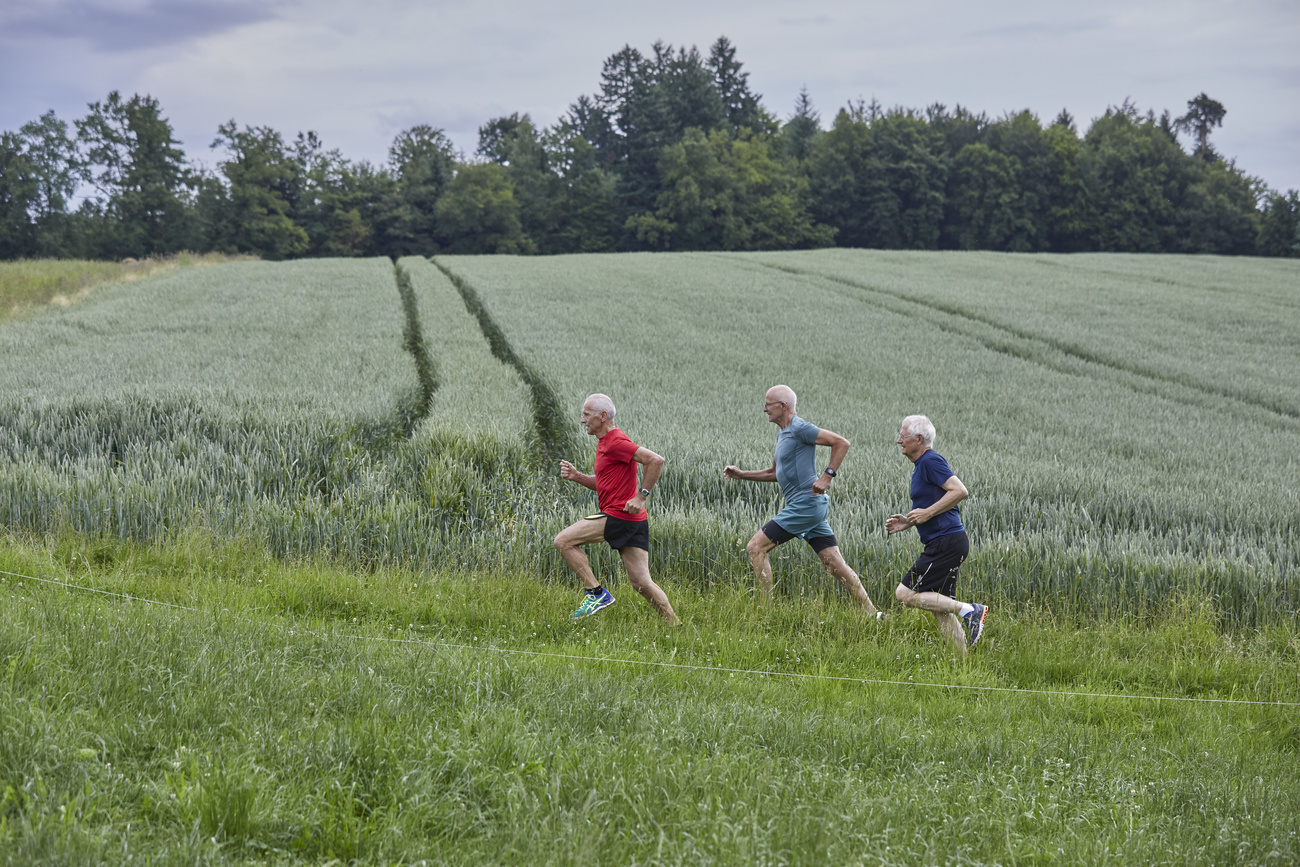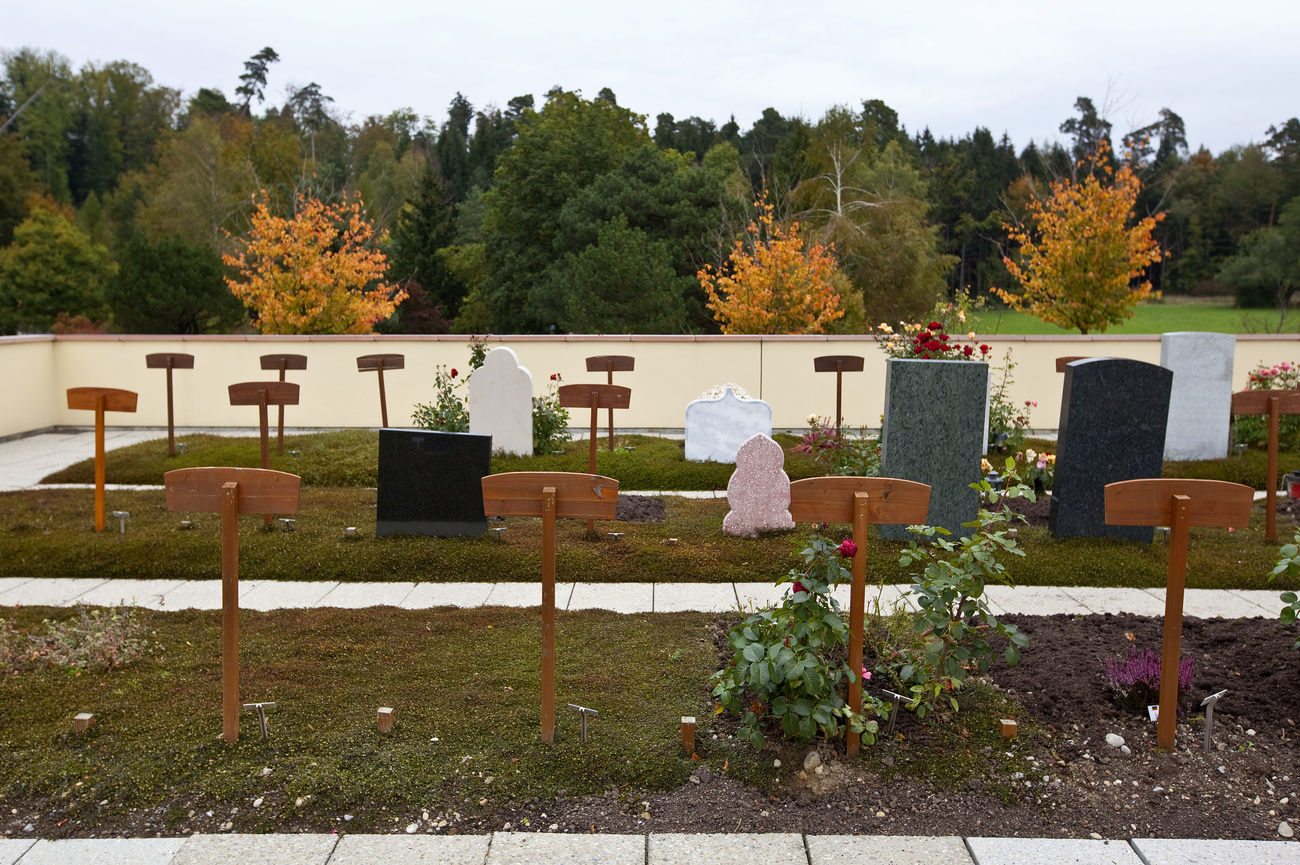

Switzerland Today
Dear Swiss Abroad,
The situation in the Lötschental in Valais is critical: the village of Blatten has had to be evacuated due to the threat of a landslide.
I also report on the health of the Swiss population and look back on the final of the Eurovision Song Contest.
Enjoy the read!

There are major differences between men and women when it comes to the health of the Swiss population. This is shown by the latest Swiss Health Survey 2022 conducted by the Federal Statistical Office (FSO).
The FSO conducts a health survey in Switzerland every five years. The results show clear differences between the sexes. Life expectancy in Switzerland in 2022 was 85.4 years for women and 81.6 years for men.
However, the higher life expectancy of 3.8 years for women is relativised by the smaller difference in life expectancy in good health. It is only 0.4 years higher for women, at 72.1 years. This means that women often spend the additional years of life with certain complaints.
For example, women are more likely than men to report living with at least one chronic illness (55% to 44%). Men, on the other hand, are more often overweight or obese (52% compared to 34%) and smoke more frequently (27% compared to 21%).
The results of the health survey also show that, in addition to biological factors such as gender, socially determined gender roles also influence health and reinforce social inequalities in this regard.

A mountain above the Lötschental in canton Valais is on the move – and time is of the essence. Because a major rockfall is imminent, the authorities have decided to evacuate the entire village of Blatten. Around 300 people have to leave their homes.
On Monday morning the authorities decided to evacuate the village of Blatten immediately. Around 300 residents had to leave their homes by 11.30am, as reported by SRF. An app message clearly stated: “Evacuate homes immediately, pack the essentials.” An information event in the village gym provided information on how to proceed.
The situation above the village is critical: rockfalls have been audible for days and are now becoming visible through clouds of dust. New measurements have revealed a slope displacement of over 2.90 metres – with an upward trend. Geologists are expecting a massive rockfall. “It’s clear to everyone that the rockslide is imminent,” Matthias Ebener, head of information at the Lötschental regional command centre, told SRF.
A few days ago, rocks on the Kleiner Nesthorn (3,342 metres above sea level) – an upstream peak of the Bietschhorn (3,934 metres above sea level) – fell onto the Birch Glacier, triggering a debris flow. This came to a standstill around 500 metres above the River Lonza on the southern edge of the village. The Birch Glacier above Blatten has been under observation since the 1990s. The current danger could be related to the onset of snowmelt at an altitude of around 2,500 metres.

Although no federal proposals were put to the vote yesterday, many cantons and municipalities were nevertheless busy voting and choosing. At municipal level, a referendum in Weinfelden, canton Thurgau, caused a stir.
Decisions were made in 14 cantons and numerous municipalities over the weekend. For example, there will be no social detectives in canton Uri – the bill for the new social welfare law was rejected by 50.7% of voters, as reported by SRF. The Uri Social Welfare Act is almost 30 years old. The Centre Party had initiated a revision of the law, the Radical-Liberal Party and the Swiss People’s Party were behind it, while the Social Democratic Party, the Greens and the Liberal Greens opposed the bill.
The decision in Weinfelden in canton Thurgau made the headlines. There is to be no burial ground according to Muslim tradition there: just under 52% of the electorate rejected the new cemetery regulations. The bill was still undisputed in the city parliament: the new cemetery regulations were approved by 24 votes to four. The far-right Federal Democratic Union, with the support of the right-wing Swiss People’s Party, launched a referendum against it, which resulted in almost 1,000 signatures.
On Friday, I reported here on the renovation of Bern’s iconic Marzili outdoor pool. Bern’s voters approved the construction loan of CHF66.8 million ($80.1 million) at the ballot box; 20,100 people voted in favour of the project, while 7,272 rejected it. This corresponds to a 73.4% yes vote. However, according to Berner Zeitung/Der Bund, there are still two sticking points in the implementation: keeping to the timetable and reaching agreement with the 11 opponents who are fighting the planned removal of 130 car parking spaces, among other things.

The Eurovision Song Contest in Switzerland is over. The winner was JJ from Austria, while Switzerland’s Zoë Më came tenth after receiving no points from the public. Nevertheless, the victory for Austria was also thanks to Swiss participation.
It remained exciting right to the end: Israel and Austria went head-to-head. However, singer JJ from Vienna won the coveted points from the public voting with his song “Wasted Love”. JJ’s song comes from a successful songwriting team, as SRF reports. Zurich producer Pele Loriano, who also co-produced last year’s winning song “The Code” by Nemo and Zoë Më’s “Voyage”, was also involved in JJ’s “Wasted Love”.
Switzerland reached tenth place with Zoë Më. It was remarkable that she was at times at the top of the jury voting and ultimately came second. However, she failed the public vote with zero points and ultimately came tenth with 214 points.
In addition to the stage, the largest public viewing in Eurovision history – according to numerous media – caused a sensation: 36,000 people watched the final in Basel’s St Jakob Park. Around 800 pro-Palestine demonstrators gathered in the centre of Basel on Saturday for an unauthorised rally against Israeli participation in the competition – the police initially let them go, but later surrounded the demonstration. Rubber bullets were also used.
The organisers of the Eurovision Song Contest in Basel are completely satisfied. “The numbers are what we dreamed of. Our expectations were met in full,” said Conradin Cramer, president of the cantonal government, to the media.
Translated from German by DeepL/ts

In compliance with the JTI standards
More: SWI swissinfo.ch certified by the Journalism Trust Initiative




























